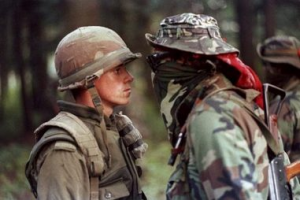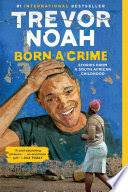Unit 4 (2023 – undergoing editing)
Are we any better?
Decolonization Is Ongoing Here in Canada!
How is Canada in the midst of decolonizing? Are we any better in our times?
1: Cooperation and Conflict – International Organizations – South Africa and Rwanda – Praise or Condemnation for International Orgs
Apartheid
Minds On: 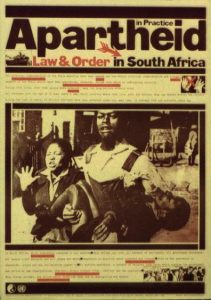 (SHEG)
(SHEG)
This image on a poster by the Anti-Apartheid Movement London shows the first student killed by police, Hector Pieterson, in the 1976 Soweto Uprising in South Africa. Identify some international organizations that might have been concerned by this event. Identify international organizations that are operating in the world today.
South Africa Background
See relatively current demographic information here.
Learn the basic history here and watch this video and this one.
Key Words for South Africa:
- UN Charter
- UN Resolution
- boycott
- awareness
- cultural sanctions
- FIFA exclusion
- oil sanctions
To be able to award or condemn an international organization for its involvement in ending Apartheid you will first need to:
– understand what apartheid was (1948-1994) and how far-reaching it was
– understand that the people of South Africa were OF COURSE the major authors of ending apartheid through their own resistance: their ongoing protests, their organizations, their sacrifices eventually made it so that South Africa could no longer go on with Apartheid by the early 1990s.
– understand the effects of actions taken by international organizations (good and bad)
– understand the larger international forces that were at play as well (economic factors and the Cold War).
Possible criteria for praise or condemnation
0 = nothing
1 = acknowledge the issue
2 = raise awareness of the issue
3 = civil actions (such as protests)
4 = legal and or policy changes
5 = solve the issue = changes ongoing
Rwanda:
Minds On: What makes genocide different from other crimes? Which international organizations have the power to intervene in and potentially stop a genocide?
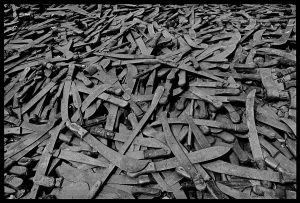
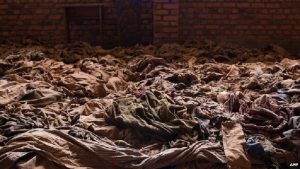
Rwanda Background
Watch this video: Rwandan Genocide Twenty Years Later
Complete this worksheet.
old Decolonization Assignment Materials:
Kenya:
Kenya_history (document with a few links)
Kenya Gains Independence (Learning Blog with the New York Times)
50 Years Since Kenyan Independence (Getty Images)
India
CHY4U_India_Imperialism_Decolonization_2017 (handout)
Br_Imperialism_India_Further_Notes (info on imperialism in India)
Decolonization of India pages in textbook:
- 191-94: British imperialism (context)
- 304-5: Sepoy Mutiny/Great Rebellion
- 316-18: growth of nationalism, different views on “civilization”, modernity
- 404-5: process of independence
Decolonization_of_India (PPT)
1947 Partition Archive (links)
India and Pakistan Become Nations, Clashes Continue (New York Times, On This Day, 1947)
Ghana:
BBC: The Story of Africa – Independence (website with case studies on Algeria and Kenya, plus overviews of British and French styles of colonialism)
Ghana Celebrates Independence (BBC News – On This Day)
The Story of Africa – Independence (BBC)
Ghanians Campaign for Independence (Global Non-violent Action Database – choose PDF)
Ghana: Country Study (Library of Congress)
A Brief History of Ghana, Part 1 (About Education)
Algeria:
A Chronology of the Algerian War of Independence (The Atlantic, Nov. 2006).
Country Profile: Algeria (Library of Congress)
Ben Bella Obituary (Washington Post)
Activity 3 – we will skip this activity *May 2019
Fri. May 24 – Mon. May 27: Forced Migration
Minds On: Why is forced migration such a common occurrence in genocides, atrocities, conflicts, civil wars, etc?
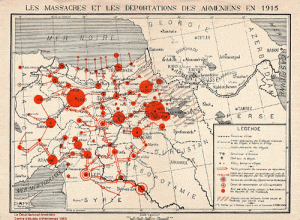
Massacres and Deportations of Armenians in 1915. Armenian Genocide Museum-Institute, Mapping Armenian Genocide, made in 1965, http://www.genocide-museum.am/eng/mapping_armenian_genocide.php
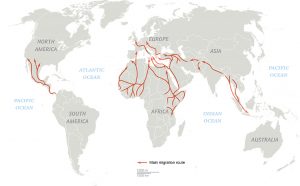
The World’s Congested Human Migration Routes in 5 Maps, National Geographic, 2015, https://news.nationalgeographic.com/2015/09/150919-data-points-refugees-migrants-maps-human-migrations-syria-world/
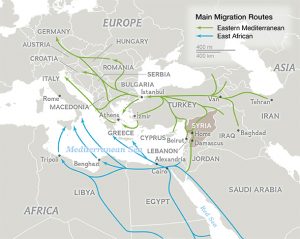
Eastern Mediterranean Route, same source as above: 4.1 millions Syrians had taken this route by 2015.
Friday:
Migration (PPT to print)
Videos: https://www.youtube.com/watch?v=K5H5w3_QTG0 (The Guardian), https://www.youtube.com/watch?v=RvOnXh3NN9w (Munich-based NGO).
Background on Syria (optional): Imperialism-in-the-Middle-East_Headings_view
Fill in the left side of this organizer using the videos above: Syrian Refugee Crisis and Brexit:
CHY4U_Unit_4_Activity_3_RefugeeCrisisTrackingSheet
Monday:
Minds On: Note the changes in how much territory the Ottoman Empire controlled by 1912.
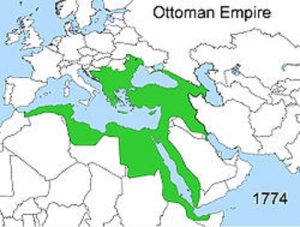
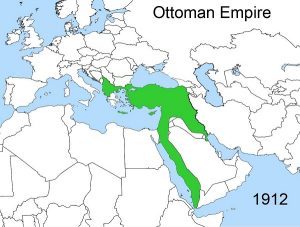
Armenian Genocide CHY4U_Unit 4_Essay_Armenian_Genocide
Compare Syria and another as case studies of forced migration. Fill in right side of organizer. Choices:
Armenian GenocideVietnamese “Boat People”https://www.historylearningsite.co.uk/vietnam-war/vietnamese-boat-people/http://www.cbc.ca/radio/rewind/the-vietnam-war-canada-s-role-part-two-the-boat-people-1.3048026https://www.theglobeandmail.com/news/national/historic-canadian-resettlement-of-vietnamese-sets-precedent-for-action/article26235892/
Ugandan CrisisDisplaced Persons after WWII
Activity 4
Consequences of Industrialization and Globalization – China, Russia, women
Minds On: What were some of the unintended consequences of 19th century industrialization? For women, the environment, growth of cities, government intervention, other? What are some of the unintended consequences of today’s industrialization? Use the same categories.
Great Leap Forward, Backyard Furnaces and Famine
Holodomor video: https://www.youtube.com/watch?v=F8wzgn6i6ik
CHY4U_Globalization+Industrialization (PPT to print)
Stalin_2017 (PPT to print)
background on Soviet industrialization
Minds On: Based on the maps below, what do you think globalization is?
Globalization in Maps (Canadian Geographic): https://www.canadiangeographic.ca/article/stunning-interactive-map-shows-globalization-youve-never-seen
Six Maps That Will Make You Rethink the World (Washington Post, 2016): https://www.washingtonpost.com/news/wonk/wp/2016/04/29/six-maps-that-will-make-you-rethink-the-world/?utm_term=.1b19195af00e
Mao_China_Background_2017 (PPT to print)
Ai Wei Wei Sunflowers: https://www.youtube.com/watch?v=PueYywpkJW8
of Interest:
1905 Revolution overview (Spartacus Educational)
Transformation of Russia in the 19th Century (US Library of Congress Country Studies)
Russia Timeline (BBC News)
The Face of Russia: Timeline (PBS, chronology of Russian culture)
1929: Collectivization – Liquidation of the Kulaks as a Class (Seventeen Moments in Soviet History)
Reform, Coup and Collapse: The End of the Soviet State (BBC News)
Women protestors in Egypt (Dec. 9, 2012,Toronto Star)
Historical Thinking lesson on women’s suffrage in Canada (links to Heritage Minute videos on Emily Murphy and Nellie McClung)
Rare Photographs of Chinese Women from the 1800s (Environmental Graffiti website)
Chinese Dress in the Qing Dynasty (Powerhouse Museum) see also The Republican Period: Modernizing Chinese Dress
Canadian Statistics on Women in the Workforce
Read and answer: CHY4U_Unit4_Act2_Effectiveness_Sanctions_vs_Apartheid
Joshua Keating, “Why did international sanctions work against South Africa but not against other dictatorships?”, Slate, Dec. 6, 2013, http://www.slate.com/blogs/the_world_/2013/12/06/opponents_of_sanctions_on_south_africa_were_wrong_but_that_doesn_t_mean.html
